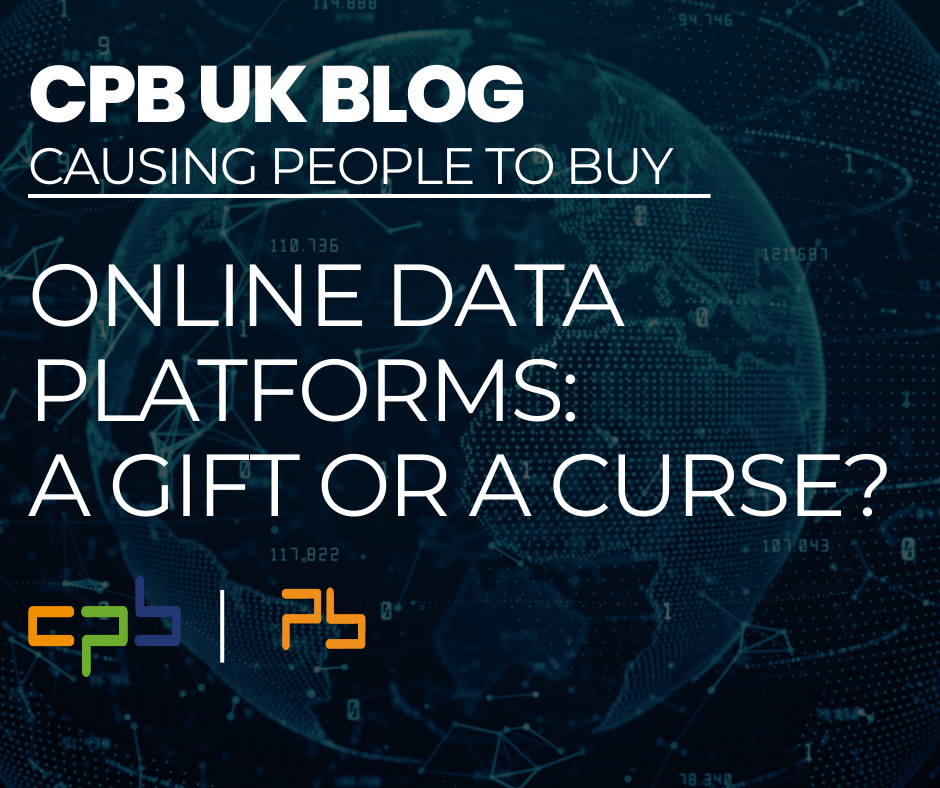Online Data Platforms: A Gift Or A Curse?
- Polina Cook

- Aug 14, 2024
- 4 min read

In today’s data-driven world, the way we access and manage information is evolving rapidly. Traditional spreadsheets have long been the cornerstone of data handling. However, online data platforms are increasingly becoming the go-to solution for businesses seeking more dynamic and collaborative data management. In this blog, we will explore the pros and cons of accessing data via online platforms versus traditional spreadsheets.
Traditional Spreadsheets: The Tried and True
Pros:
Simplicity and Familiarity: Most professionals are familiar with spreadsheet software like Microsoft Excel or Google Sheets. Their straightforward interface and functionalities make them easy to use for basic data tasks.
Offline Access: Traditional spreadsheets can be accessed and edited without an internet connection, ensuring that work can continue even in the absence of connectivity.
Control and Customisation: Users have complete control over data formatting, calculations, and analysis, allowing for highly customised data manipulation.
Targeted data: Contact data provided on a spreadsheet contains all the data you have requested in one place and in a simple format that can easily be filtered. It is focused and targeted on your precise campaign needs and does not contain irrelevant information making it efficient to use.
Cons:
Limited Collaboration: While Google Sheets offers some collaborative features, traditional spreadsheet software generally falls short in real-time multi-user collaboration, often leading to version control issues.
Scalability Issues: As data grows, spreadsheets can become unwieldy, slow, and prone to errors. They are not designed to handle large datasets efficiently.
Manual Processes: Many tasks in traditional spreadsheets require manual input, increasing the risk of human error and reducing efficiency.
Online Data Platforms: The Modern Approach
Pros:
Enhanced Collaboration: Online data platforms like Tableau, Power BI, and Salesforce offer robust collaboration features. Multiple users can work on the same dataset simultaneously, ensuring consistency and reducing the risk of errors.
Scalability and Performance: These platforms are designed to handle large volumes of data efficiently. They offer powerful processing capabilities that traditional spreadsheets can’t match.
Advanced Analytics and Visualisation: Online platforms provide sophisticated tools for data analysis and visualization. They can integrate with various data sources and generate insights through interactive dashboards and reports.
Real-Time Data Access: With cloud-based data platforms, users can access and update data in real-time from anywhere, provided they have an internet connection. This ensures that everyone is working with the most current data.
Cons:
Cost: Online data platforms often require a subscription or licensing fee, which can be a significant expense for small businesses or individual users. Such platforms are very expensive due to the depth of data contained within the database. However, this means you are generally paying for information you don’t need.
Learning Curve: While these platforms offer advanced features, they also come with a steeper learning curve. Users may require training to utilise the full potential of these tools.
Dependence on Internet: Unlike traditional spreadsheets, online data platforms require an internet connection. This can be a limitation in areas with unreliable connectivity.
Unwieldy and complex: Online data platforms contain huge amounts of data, but this very fact leads to them being unwieldy and complex. Users must sift through masses of irrelevant data to find that which they actually need making usage time consuming and frustrating. Such platforms are essentially a data directory; lacking in specific content, complex to dissect and not industry specific.
Which Is Right for Your Business?
The choice between traditional spreadsheets and online data platforms depends on your business needs, budget, and data management requirements.
For Small Businesses and Simple Data Tasks: Traditional spreadsheets would suffice. They offer simplicity, offline access, and a familiar interface.
For Large Enterprises and Complex Data Needs: Online data platforms could be a better option. They provide scalability, advanced analytics, and superior collaboration features that can handle large datasets and complex analyses. However, you should consider how much time, energy and resource is wasted whilst trawling through the vast mountain of data in an online platform.
For targeted campaigns: Traditional spreadsheets would serve these needs best by providing focused, specific data based on a customer’s individual campaign requirements.
Our Customers’ Experience With Online Data Platforms
If you are considering an online data platform provider for your data needs, it may be worth considering these points before you take the plunge. The following represent the experiences of our clients when trying out such platforms and the potential pitfalls that they have highlighted to us vs their experience of the data ProspectaBase offers.
Lack of mobile numbers / direct dials for key IT stakeholders and influencers
Not IT specific and often have a lot of records with irrelevant job titles listed
No insights into existing IT investment areas or installation specifics
Outdated data intelligence
On the other hand, ProspectaBase offers consistency and confidence in its data:
190,000+ IT buyer personas
Network component segmentation, i.e. # of network users, # of servers, volume of data etc
55,000+ mobile numbers & direct dials for IT contacts
IT installation insights across all core IT remits, i.e. cloud, data centre, telephony, networking, IT security etc
180,000+ tech fields, 160+ tech vendors & 80+ tech categories
Accurate and cleansed intelligence with regular refreshes delivered throughout your subscription
Unlimited usage, 12-month licensing
Conclusion
Both traditional spreadsheets and online data platforms have their place in the modern business environment. Understanding the pros and cons of each can help you make an informed decision that aligns with your business objectives and enhances your data management capabilities.
Whether you choose the specificity and focus of the data in a spreadsheets, or the complex features of online platforms, the goal remains the same: to leverage data for better decision-making and business growth.





Comments